 W
WQadir Abdullahzada born in village of Kulice in northwestern Iran, is one of the best known Kurdish traditional musicians. He played shimshal/ney, a Kurdish traditional music instrument. He started to play shimshal (Ney) as a young and homeless man aiming to earn his daily bread. He played on the streets for an unknown number of years until he was an old man and was filmed by a journalist which was published as a documentary. He was known for the long tones he could create and to play for hours without holding breaks.
 W
WAsieh Ahmadi is an Iranian daf, dayereh and tanbur player. She is the sister of Sara Ahmadi. Ahmadi has made numerous recordings with prominent musicians including Abdolhossein Mokhtabad, Nasser Razazi, Pari Zanganeh and Simin Ghanem, and is a member of the Musical groups Hannaneh and Toranj.
 W
WFaramarz Assef is an Iranian music artist and former triple jumper who won a bronze medal at the 1974 Asian Games in Tehran.
 W
WDavood Azad is an Iranian singer, multi-instrumental musician and composer who sings both Iranian classical music and Azeri folk music. He is the first Iranian lecturer invited to Oxford University to lecture about Iranian music & its forms.
 W
WRoozbeh Azar is an Iranian solo guitarist in flamenco and fusion guitarist. He learned Iranian traditional music under Reza Darman, Amir Moshir Falsafi, Faramarz Shokrkhah from 1988 to 1993. He learned flamenco guitar under supervision of Mansour Rasa in 1994 and he learned the principles of harmony and music composing under Mohammad Haghgou.
 W
WMohammad & Ali Saeidi ( محمد و علی سعیدی) are Iranian traditional singers. They are considered the only Iranian singing twins.
 W
WQolamhossein Bigjekhani, also Qolam-Hossein Bigjeh-Khani, was an Iranian musician and tar player. He was born in Tabriz.
 W
WNegar Bouban is an Iranian oud and barbat player and student of Mansour Nariman, best known for playing Iranian folk music and improvisational works.
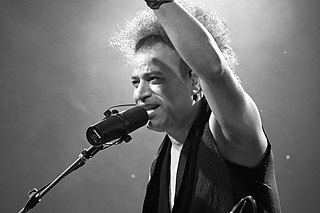 W
WHabib Meftah Boushehri
 W
WDarvish Khan was a Persian classical musician and a tar player.
 W
WEbrahim Hamedi, better known by his stage name Ebi, is an Iranian singer. He left Iran in 1977, currently residing in Spain.
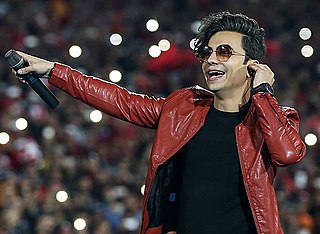 W
WMohsen Ebrahimzadeh is an Iranian vocalist and musician. He performed at the 2018 AFC Champions League Final between Persepolis and the Kashima Antlers.
 W
WMohammad Esmaili is an Iranian percussionist. He grew up in a musical family, which included his uncles Morteza Goreenzadeh and Musttappha Goreenzadeh, trumpet and clarinet players. From an early age, Mohammad was impressed by the "father of modern tombak", Hossein Tehrani, which attracted him to this field as a tombak player.
 W
WSaeed Farajpouri, was born on February 20, 1961 in Sanadaj, Iran. He is a composer, performer and an instructor of a classical Iranian instrument called Kamancheh or Spike Fiddle.
 W
WMohammad Firouzi is a prolific Iranian musician, whose primary instrument is the barbat.
 W
WSimin Ghanem is an Iranian classical and pop singer. She is best known for her song "Gole Goldun".
 W
WAram Gharabekian was an Iranian-born Armenian conductor, former Artistic Director and Principal Conductor of the National Chamber Orchestra of Armenia. In 1983 he founded and until 1996 directed and conducted the Boston SinfoNova Orchestra.
 W
WHossein Gol-e-Golab (Persian حسین گلگلاب also given as Hosayn Golgolab, was a polymath Iranian scholar and musician who wrote the patriotic anthem Ey Iran.
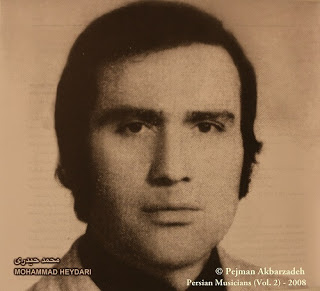 W
WMohammad Heidari was a Persian santur player and songwriter.
 W
WMaryam Heydarzadeh is a contemporary Iranian poet, lyricist, and singer.
 W
WHossein Khajeh Amiri, more commonly known as Iraj, is an Iranian singer.
 W
WArdeshir Kamkar is a Kurdish musician from Iran.
 W
WHassan Kassai was a musician and player of Persian classical music. He played the ney, the traditional reed flute of Persia/Iran.
 W
WMuhammad Mamle was a Kurdish musician and singer. He renewed hundreds of Kurdish folkloric songs.
 W
WJavād Ma'roufi, was an Iranian composer and pianist.
 W
WMehrdad Minavand is an Iranian former professional footballer. He played mostly as a left midfielder but was also deployed as a left winger or left-back.
 W
WNasrollah Moein Najafabadi, more commonly known as Moein, is an Iranian singer. Moein was born in Najafabad, a city in Isfahan Province of Iran. He began his artistic career as a radio singer and released several albums before Yeki Ra Doost Midaram in 1986, which was his first album to be widely noticed in Iran. In recent years, Moein has become widely acclaimed in Iran and he has played concerts throughout the globe. He is referred to as "Javdan Sedaye Eshgh," which translates to "The Eternal Voice of Love."He is one of the Greatest singers in Iran History .He has two daughters, Parichehr and Setareh.
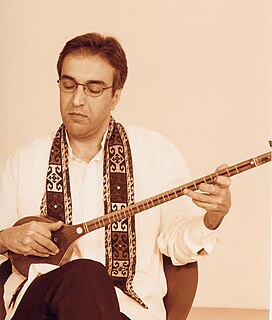 W
WHamid Motebassem is a classical Persian musician and tar and setar player.
 W
WMansour Nariman was an Iranian oud player, researcher and writer.
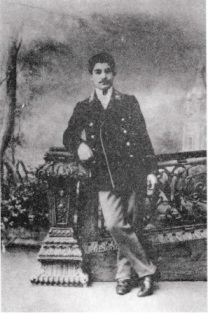 W
WNasrollah Minbashian was born in 1885 and a received musical education from his father Gholam Reza Minbashian in Dar al-Fonun. In 1898, he was 13 years old when his father took him to Saint Petersburg and enrolled him in the conservatory, while Gholam Reza himself followed lessons by Rimsky Korsakov. When he left Russia in 1891, Gholam Reza arranged for his son to stay with his teacher at the conservatory, so that Nasrollah could continue his education privately as well. Nasrollah Minbashian would stay there for seven years. In 1905, he was 20 years old and returned to Iran to teach the cello. He stayed a few years in Shiraz, but then returned to Russia in 1912 where he became the piano teacher of Princess Irina Alexandrovna Romanova. Back in Iran, he entered the Cossack Brigade with the rank of captain. He remained there until reaching the rank of brigadier general. In 1921, he became deputy-director of military music, which he combined with directing the School of Music, by succeeding his father. He held these two directorships until 1935, while teaching several instruments which he mastered: the piano, the violin and the cello. He also composed several national anthems using the works of the poets Ferdowsi and Saadi. He died on 29 August 1938 at the age of 53.
 W
WGiti Pashaei Tehrani was an Iranian singer and musician. Giti was one of the most popular Iranian singers of the late 1960s and 1970s.
 W
WShahrzad Sepanlou is a Persian American singer. She was born in Tehran and migrated to the United States in the mid-1980s. Sepanlou is currently a marriage and family therapist in Orange County, CA.
 W
WAbdolvahab Shahidi is a prominent Iranian barbat player, singer and composer in the classical style born on 24 September 1922 in Meymeh. He is noted as one of the contemporary pioneers of Persian music by BBC Persian.
 W
WJalil Shahnaz was one of the greatest maestros of Persian classical music and a virtuoso of the tar.
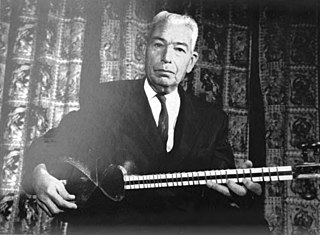 W
WAli-Akbar Shahnazi was an Iranian musician and master of the tar.
 W
WRahim Shahriari is an Iranian popular songwriter and singer born in Shamqazan district of Tabriz, Iran in 1970. Shahriari is leader of the Araz musical group and has made several hits around Iran.
 W
WHassan Shamaizadeh is an Iranian pop singer, songwriter and saxophonist. Over the past three decades, he composed songs for artists like Googoosh, Dariush, Moein, Ebi, Aref, Homeyra, Farhad and others.
 W
WFarhang Sharif was an Iranian musician and renowned tar player.
 W
WSusan, born Golandam Taherkhani, was a popular Iranian singer of particularly the 1960s and 1970s. Among her recordings was her 1969 release of "Kolah Makmali"
 W
WAli-Naqi Vaziri, also transcribed as Ali Naghi Vaziri
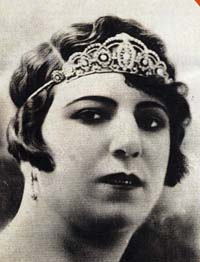 W
WQamar-ol-Moluk Vaziri, born Qamar Khanum Seyed Hosayn Khan, commonly known as "Qamar", was a celebrated Iranian singer, who was also the first woman of her time to sing in public in Iran without wearing a veil. She is known as "the Queen of Persian music".
 W
WJavad Yasari is an Iranian Street singer of popular music.
 W
WHoushang Zarif was a master of tar and Persian classical music.
 W
WBabak Zarrin is an Iranian composer and songwriter.